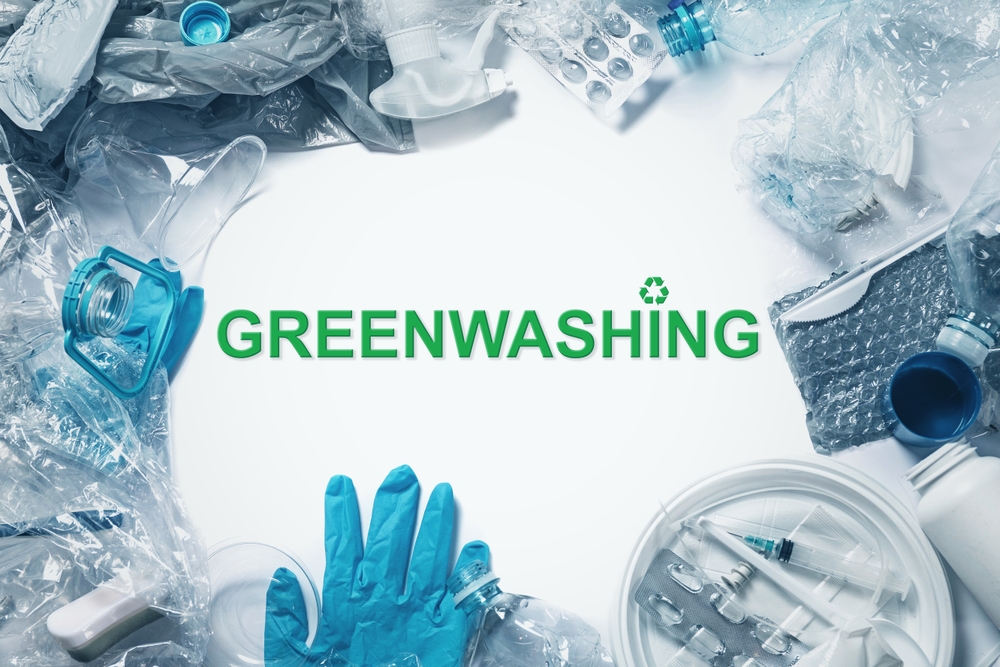
If Nothing Else, Read This…
Last month, the Federal Trade Commission hosted a workshop in Washington, D.C. as part of its ongoing review of the Green Guides – principles for regulating the environmental marketing claims companies make about their products and packaging. This includes claims about recyclability. The Guides are intended to help the Commission combat deceptive advertising, hold companies accountable for the claims they make, and prevent pollution. But if the pervasiveness of corporate greenwashing has taught us anything, it’s that the Green Guides just aren’t working. And the plastic industry wants to keep it that way.
Plastic Isn’t Recyclable and Companies Are Making It Worse
Our recycling system doesn’t work. This is especially true when it comes to plastics. The U.S. plastic recycling rate is at a dismal 5%-6%. This isn’t surprising considering most plastics were never designed to be recycled. But you wouldn’t know that from the labels on the plastic products and packaging lining the shelves of stores across the country. Why? Because companies falsely and deceptively label their plastic products and packaging as “recyclable” even though they aren’t.
Consumers have become increasingly concerned about the environmental impacts of the products they buy – and whether that product or packaging is recyclable. The plastic and petrochemical industries know this. But instead of redesigning their products to meet consumer expectations, these companies simply lie. This not only confuses consumers, but also masks the true harm plastics have on our health and environment. And unfortunately, right now federal law just isn’t strong enough to prevent this greenwashing. Which is exactly why we need stronger laws.
The Plastic Industry Misinformation Campaign
For decades, consumers have been sold a lie. We’ve been told that most plastics can and will be recycled. But the plastic industry and large corporations know this isn’t true. In fact, even in the early days of recycling, industry insiders noted that “there is serious doubt that [recycling plastic] can ever be made viable on an economic basis.” So, even though plastics recycling was a farce from the get-go, companies knew they could make billions by selling the public on the idea. And that’s exactly what they did. A central part of this scheme was convincing consumers that most plastic was recyclable. And the easiest way to convince them was by putting the chasing arrows symbol right on the product or packaging label.
Right now, the Commission’s Green Guides allow companies to claim their products or packaging are recyclable if most consumers have access to recycling programs that collect those items. The problem? There’s no evidence that the product or packaging is actually being recycled. Just because a product can be collected for recycling doesn’t mean it will be.
Take store drop off programs for example. More and more consumers have access to programs where plastic bags and other plastic films can be dropped off at a local store for “recycling.” But while stores may collect these materials, they don’t actually recycle it. In fact, a recent investigation found that virtually none of the plastic bags and films collected through store drop off programs get recycled. Under the existing Green Guides, these products can and are being labeled as recyclable.
Companies Must Earn the Right to Claim Their Products and Packaging are Recyclable
This system of greenwashing must end. Companies should have to earn the right to claim their products or packaging is recyclable. That means only claiming a product or packaging as recyclable if it has a significant chance of being recycled after collected. And for that to happen, the product or packaging must be 100% recyclable. What does 100% recyclable look like? Products and packaging…
- Can’t have any components, adhesives, or labels that prevent or limit its recyclability,
- Must be routinely collected, sorted, and processed through established recycling programs,
- Must have a strong end market for the use in manufacturing new products.
This is aligned with California’s new Truth in Labeling Law, which will streamline recycling labels to curb greenwashing and misinformation. These criteria will significantly reduce confusion about what is and isn’t recyclable. They’ll empower consumers to make educated choices when evaluating the products they want to purchase. And it will reduce contamination in the recycling stream, which will help ensure that the materials that are actually recyclable are, in fact, being recycled.
A significant source of costs and headaches for recycling facilities is sorting through all the products and materials that shouldn’t be in the recycling system. This increased transparency will reduce contamination and make sure the system is working properly.
Companies Won’t Give Up – We Need Your Help to Win This Fight
It was clear at the workshop in D.C. that not everyone wants to see the law changed to limit misinformation and ensure more accurate product labeling. The plastic industry and the corporate giants that use plastic for their products and packaging have a different view. They are fighting hard to maintain the current system that allows them to lie about the recyclability of their products. And all for the purpose of tricking consumers into thinking that these corporations operate with the environment front and center. Worse, these companies work hard to push for new technologies that increase pollution and threaten public health to qualify as solutions to the recycling problem.
Just Zero is committed to making sure the Federal Trade Commission works to end corporate greenwashing and increase transparency about the recyclability of products and packaging. But we can’t do it alone. We need your help to hold these companies accountable. Donate to Just Zero today. Your gift will help us push back against the industry’s greenwashing campaign and continue championing real solutions to our plastics crises.